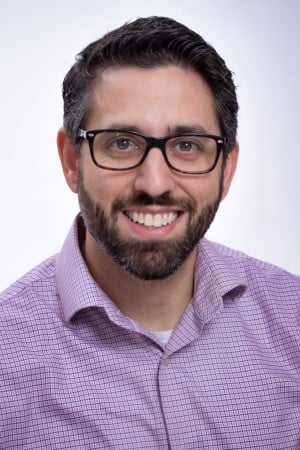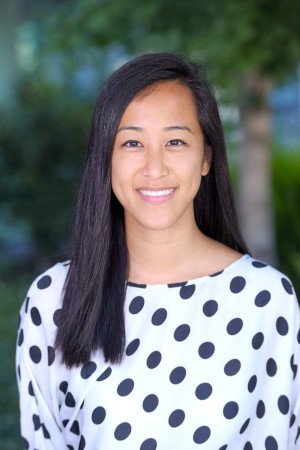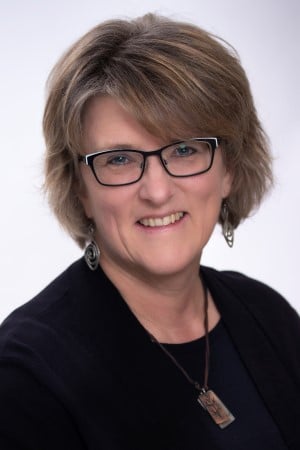Paediatric Advanced Care Team
The Paediatric Advanced Care Team (PACT) meets with children and their families when a child is facing a serious illness to provide an extra layer of support.
We are a group of health-care providers that specialize in quality of life for a child and their whole family. We do this by maximizing things that bring joy to a child’s life and minimizing the challenges that go along with a serious illness. We are experts in managing physical symptoms, such as pain and difficulty breathing. Even when we can’t ‘fix’ the underlying illness, we can make sure that children are feeling as good as possible so they can do the things they enjoy most.
Many families find our team helpful in providing a ‘sounding board’ for making difficult medical decisions. We work with your existing care teams to enhance the care your child is already receiving to make sure it reflects the values and preferences of your child and your family.
Our team used to be called the Palliative Care team but we changed our name because when people hear the words palliative care they often think it’s synonymous with death and dying. Although our team has expertise in caring for children at end-of-life, our focus is on helping children and families live well, rather than on dying.
Our team wants to help make every day as good as it can be for children with serious illnesses and their families. By getting to know more about a child, their family and what is important to them, we can often find ways to positively impact a child’s quality of life.
We work with a team of professionals who can be involved with a child at the hospital or at home, to improve quality of life. This team includes music therapists, a massage therapist, an art therapist, spiritual care providers, child psychosocial support providers and other community resources.
We can help families establish goals of care by identifying what is most important to them and their child, and how their child’s care can reflect this given the circumstances they are facing. Over time, a child’s condition might change and as a result goals may change too. Our team can help support decision making and planning for the future.
Families may be faced with difficult decisions, including ones about the possible use of medical technology (for example, devices to help with feeding or breathing) or organ transplantation. We will work families to help them make the best possible decisions that are in line with their specific goals of care.
Children with serious illnesses and their siblings often have fears and concerns about what will happen over time. Our team can help facilitate these hard, but important, conversations. We help parents prepare to have these conversations with their children, and can also be present or help to lead these conversations if desired. These conversations help decrease fears by clarifying misconceptions or creating a plan to address specific concerns.
We are also available to meet with siblings separately to address their own unique worries.
Serious medical conditions may be accompanied by distressing symptoms, such as breathing difficulties, pain, nausea and vomiting and other sources of discomfort. We work with other teams that are part of a child’s care to reduce these symptoms as much as possible.
IMPACT (Infant Maternal Perinatal Advanced Care Team) meets with families during pregnancy when their unborn baby is found to have a potentially life-threatening condition.
We help support these families with decision making around the pregnancy and preparing siblings.
We also provide ongoing support to families after the birth of a baby, whether they are living with or dying from their underlying condition.
Should end-of-life care be needed, we will be there to provide families with support in their preferred setting – home, hospice, or hospital – to ensure their child’s comfort, help create meaningful legacies and memories, and to support families who are grieving.
Grief is experienced as soon as a path deviates from its expected course, which often begins from the time a child is diagnosed with a serious illness. Pathways Grief Support Coordinators are available to help families process and talk through that grief.
Our team will help finding ways to tell your child/patient’s story. Memory making and legacy creation can include family photos, handprints, and hand moulds.
When a child dies, grief support coordinators are also available to help with funeral planning and other resources and support that families requires, both within the hospital and in the community.
Ongoing grief support is available both individually and through group events and remembrance ceremonies.
Who we are
Our team consists of health-care professionals including physicians, nurses and grief support coordinators.
PACT is a consult service that works with inpatient and outpatient teams at SickKids. PACT also partners with other professionals like music therapists, massage therapists, art therapists, child life therapists, psychiatrists, chaplains, bioethicists, researchers, volunteers and parents to ensure each child and family is receiving optimal support.
Our team acts as a bridge between home, hospital and hospice (such as Emily’s House) to ensure that children receive care in the location of their choice. PACT has strong relationships with many community resources and routinely partners with community palliative care providers.

Clinical Director

Physician, Interim Program Director, Palliative Care Fellowship

Physician

Physician

Physician

Physician

Community Psychosocial Support

Community Outreach Nurse Practitioner

Grief and Bereavement Support Coordinator

Grief and Bereavement Support Coordinator

Clinical Nurse Specialist

Clinical Nurse Specialist

Nursing Research Associate

Administrative and Clinical Coordinator

Education Administrative Coordinator

Administrative Assistant

Project Manager
What to expect in an initial PACT consult
We’ve learned over the years that the best way to support families is to start by getting to know them. We therefore spend much of our initial consult learning about each individual patient – and by that we don’t mean what is written in their medical chart – but who they really are – what makes them smile, how they spend each day, and how their friends and family would describe them. We also take the time to hear about who is in their family, and how living with a serious illness has impacted brothers, sisters, moms, dads, and grandparents.
To help us understand how we can help, we also ask a lot about existing supports. Who does the family lean on? Are friends and family aware of what is happening? Are finances an additional stressor right now? Would the family consider themselves spiritual? Is their faith a source of strength?
One of our primary goals is ensuring that the care a child receives reflects a family’s wishes and values. Therefore, we often ask families “in light of your understanding of your child’s illness, what is most important you?” We want to understand what a family is hoping for, as well as what they are most worried about.
- Talking to kids about serious illness: The 6 C's and the 3 W's in English (PDF)
- Talking to kids about serious illness: The 6 C's and the 3 W's in French (PDF)
- Talking to kids about serious illness: The 6 C's and the 3 W's in Simplified Chinese (PDF)
- Talking to kids about serious illness: The 6 C's and the 3 W's in Tamil (PDF)
- Talking to kids about serious illness: The 6 C's and the 3 W's in Arabic (PDF)
- Talking to kids about serious illness: The 6 C's and the 3 W's in Spanish (PDF)
- SickKids VS Despair podcast: How should we talk to our kids about dying?
- The Waiting Room Revolution podcast: Interview with Shaindy Alexander (Child Life Specialist)
- Books recommended by Shaindy Alexander (Child Life Specialist)
We recognize that when a child has a serious illness their care needs can be overwhelming at times and planning to meet their care needs is a dynamic process. Sometimes families can benefit from additional supports in the home setting, other times an alternative location of care may be preferred.
Medical respite involves caregiving for complex patients by well trained staff familiar with medical technology, usually for short periods of time (hours to days). Medical respite care programs offer families a break from the daily routine of caregiving. Respite is an essential component of paediatric palliative care. Enhanced respite funding is available for families who qualify through the Ministry of Health and can be used to reimburse a trusted friend, family member or other caregiver to watch a medically fragile child at home.
Here is a list of recommended organizations in Ontario:
- Emily’s House (Toronto)
- Holland Bloorview Kids Rehabilitation Hospital (Toronto)
- Safe Haven Respite Care (Toronto)
- Darling Home for Kids (Milton)
- Kids Country Club (London and Cambridge)
- Roger Neilson House (Ottawa)
If you do not see a respite resource that is close to you, please speak with your care team to learn about other options.
- CaringTogether.life is a free platform designed to educate, support, and empower parents caring for a seriously ill child and those who are experiencing pregnancy or infant loss
- Courageous Parents Network is a non-profit organization and educational platform that orients, empowers and accompanies families and providers caring for children with serious illness.
There are financial supports available to children with specific health needs. You can speak with your care team about whether you may be eligible for any of the following:

Resources for families experiencing grief and bereavement
Support resources for your family after the loss of a child.

We are excited to offer elective experiences with our team. These electives are a minimum of two weeks and maximum of four weeks and are aimed at those interested in incorporating palliative care skills into their practice. Unfortunately we do not currently have the capacity to accept medical students. Please note that our electives fill up very quickly, and they are distributed on a first come first serve basis.
For more information or to arrange an elective please contact:
Jenny Loor - Administrative Coordinator
Paediatric Advanced Care Team (PACT)
Phone: 416.813.6905 | Fax: 416.813.7999
jenny.loor@sickkids.ca
PACT offers two fellowship streams for individuals interested in pursuing advanced training in paediatric palliative care:
One-year clinical paediatric palliative care SickKids certificate program
We will be accepting applications for the 2026–2027 academic year until January 14, 2025.
This fellowship is ideal for individuals who are seeking focused experience in paediatric palliative care, and for whom a Royal College designation is not essential. The fellowship is focused on advancing the trainee's knowledge of quality-of-life concerns, paediatric pain and symptom management, the provision of psychosocial support across the illness trajectory and end-of-life care.
The trainee will become familiar with comprehensive, interdisciplinary care, evaluation, and management of children with diverse advanced illnesses and their families, and will be responsible for the care of inpatients and outpatients in varied settings, including an academic teaching hospital, hospice, and home. Applicants must be board-eligible, or board certified in paediatrics or one of its sub-specialties and demonstrate a commitment to incorporating palliative care into practice. An elective experience with PACT is strongly recommended prior to applying (see above). To apply:
Two-year Royal College accredited paediatric palliative medicine program
This fellowship is ideal for individuals who are seeking advanced training in paediatric palliative care and a career at an academic institution in Canada. Details of the fellowship program and application process can be found on the CaRMS website.
For more information or to submit an application please contact pact.fellowship@sickkids.ca.
Natalie Jewitt
Program Director, Palliative Care Fellowship
natalie.jewitt@sickkids.ca
Jenny Loor
Administrative Coordinator
Paediatric Advanced Care Team (PACT)
Phone: 416.813.6905 | Fax: 416.813.7999
jenny.loor@sickkids.ca
Events and symposiums
Biennial SickKids Paediatric Palliative Care Symposium
Lots of individuals at SickKids, and indeed across Ontario, are interested in clinical or research aspects of pediatric palliative care.
In Partnership with Hospice Palliative Care Ontario, the Biennial SickKids Paediatric Palliative Care Symposium attracts more than 100 clinicians, researchers, family members and volunteers interested in palliative care for children. The day starts with a key note address at our hospital wide grand rounds given by an invited distinguished guest from the field. The remainder of the day is filled with learning opportunities, presentations of new research findings, expert panel discussions, and ample time to connect with others who share similar interests.

PACT is committed to advancing paediatric palliative care through active participation in research. Many of our team members engage in research to better understand the experiences of patients and their families facing serious illnesses and to find ways to improve care. Dr. Kate Nelson (MD, PhD) and Kimberley Widger (RN, PhD, CHPCN(C) have a specific interest in research. Visit their profiles to learn more about their research interests and view their publications.
Participating in research
Together, we want to continue to understand children and their families’ experiences with serious illness and find ways to improve care. We routinely work with patients, parents, siblings and healthcare providers to advance our research goals. If you are interested in getting involved as a research participant or collaborator, contact: pact.info@sickkids.ca.
Our history
It's a little known fact that SickKids was one of the very first paediatric institutions worldwide to offer palliative care for children and their families. In 1986, a service was created by a small group dedicated nurses on the neurosurgical unit, with physician support provided by the Clinical Pharmacology team. In 1989, a feasibility study was presented to the hospital board, who gave their support to the initiation of a hospital-wide palliative care service. Over the years, palliative care at SickKids has gone through various phases, but a number of dedicated staff have maintained an ongoing service until the present day. In 2003, the first dedicated physician was hired at SickKids to staff what was then called the Palliative and Bereavement Care Service.
In the 2010's, major shifts were underway that ultimately resulted in a considerable expansion of the palliative care service at SickKids. The hospital was increasingly caring for children with chronic complex conditions, many of whom were technology-dependent and some of whom would still have a shortened life. At the same time, more and more people were recognizing that the goals of palliative care - maximizing quality of life and minimizing suffering - were beneficial to those living with serious illnesses, not just those dying from them. In 2011, the first Medical Director was appointed to the team and by 2012, the Paediatric Advanced Care Team (PACT) was officially born.
Today, PACT consists of a multi-disciplinary group of clinicians who provide a full range of palliative and bereavement care services hospital-wide and throughout the community.

Contact PACT
Phone: 416-813-6905
Email: pact.info@sickkids.ca
Fax: 416-813-7999
Address:
555 University Avenue
Room 5401
Toronto ON, M5G 1X8

